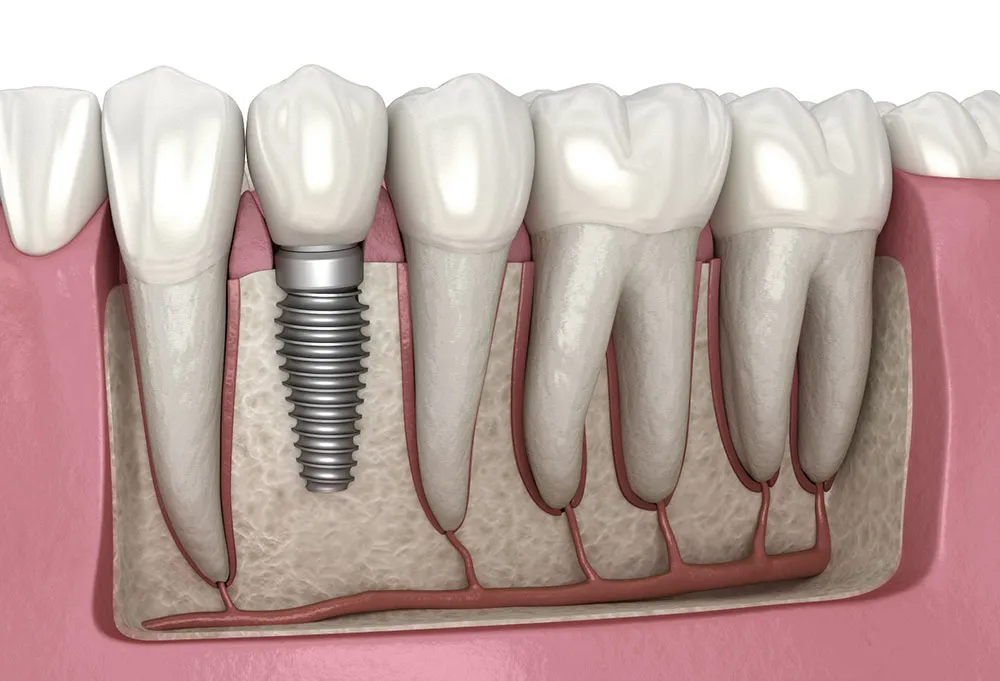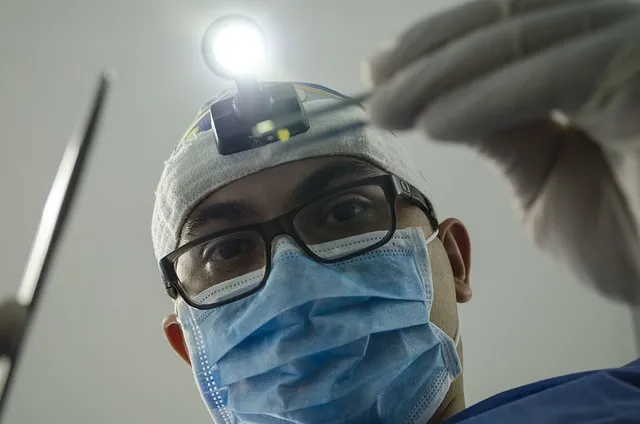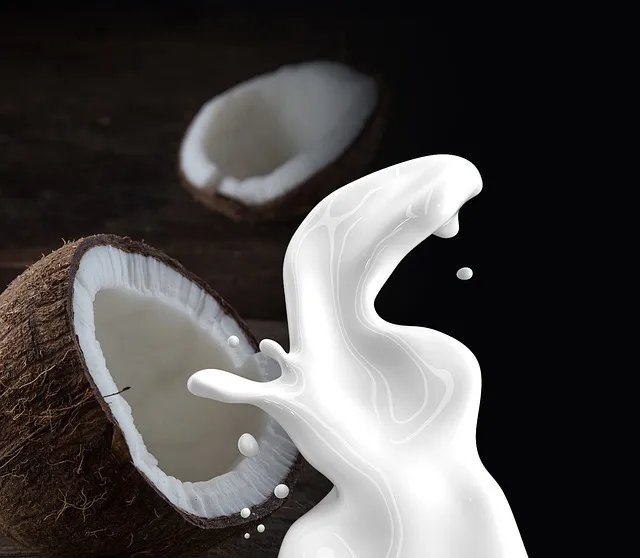
Congratulations on your dental implant surgery! Dental implants are an incredible advancement in modern dentistry, providing a permanent solution to restore your smile and improve your oral health. As you embark on your journey to a confident and functional set of teeth, it’s crucial to understand the essential elements of post-implant care, including dietary considerations.
You may be wondering why dairy products, which are often associated with calcium and other vital nutrients, should be avoided after dental implant surgery. Well, buckle up, because we’re about to explore the fascinating reasons behind why no dairy after dental implant surgery.
To understand quickly, dairy products can increase inflammation in the mouth, which can worsen swelling and pain after a dental implant procedure. So for the first few days following implant placement, a low-dairy or no-dairy diet is recommended to help the implants heal optimally.
So, put down that glass of milk for a moment, and let’s uncover why a dairy-free diet is highly recommended after dental implant surgery. By understanding the science behind this dietary restriction, you’ll be equipped with the knowledge to make informed decisions and ensure a seamless recovery process.

Specific reasons why no dairy after dental implant surgery
Calcium and phosphate ratios affecting bone healing
Did you know that the delicate balance between calcium and phosphate is like a harmonious dance within your body? When it comes to bone healing after dental implant surgery, this dynamic duo takes center stage.
Calcium, often hailed as the superhero of bone health, provides the sturdy framework necessary for implant integration. However, it can’t work its magic alone. It needs a trusty sidekick, phosphate, to create the perfect environment for new bone formation.
Dairy products, while rich in calcium, tend to have imbalanced calcium-to-phosphate ratios. This can disrupt the delicate equilibrium required for optimal bone healing. Consuming excessive amounts of calcium without the right proportion of phosphate may hinder the proper mineralization of bone, slowing down the integration process.
It’s all about finding the perfect rhythm for your bone healing symphony. So, let’s explore more about why dairy should take a backseat during this crucial period and discover the nourishing alternatives that will have your dental implant singing with joy.
Potential for bacterial contamination in dairy products
While dairy may seem innocent and delightful, it can harbor some unsavory visitors that could wreak havoc on your dental implant healing process.
Dairy products, with their creamy texture and delectable flavors, make the perfect breeding ground for bacteria. From the moment that milk leaves the udder, it becomes a potential playground for harmful microorganisms, including bacteria like Salmonella and E. coli.
Now, imagine introducing these unwelcome guests to your freshly operated implant site. Not a pretty sight, huh? Bacterial contamination can lead to infections, jeopardizing the success of your dental implant and prolonging your recovery time.
To safeguard your implant’s journey to a blissful union with your jawbone, it’s essential to steer clear of dairy during this critical healing period. Fear not, though, because there’s a whole world of dairy-free options out there, waiting to tantalize your taste buds while keeping those pesky bacteria at bay.
So, bid farewell to bacterial invaders and join us on this dairy-free adventure, where we explore the enticing alternatives that will support your dental implant’s triumphant voyage to a healthy and radiant smile.
Inflammatory response due to lactose and casein intolerance
Lactose, the sugar found in dairy products, and casein, a protein present in milk, can be the villains behind an unwelcome guest at your healing party: inflammation. For those with lactose or casein intolerance, consuming dairy can trigger a cascade of unpleasant symptoms, including bloating, stomach cramps, and, you guessed it, inflammation.
Now, imagine your poor healing mouth dealing with inflammation on top of its recovery mission. It’s like adding insult to injury, quite literally. Inflammation can impede the healing process, prolong discomfort, and even compromise the stability of your dental implant.
But fear not! There’s a bright and tasty side to this story. By embracing a dairy-free lifestyle during your implant recovery, you’ll bid adieu to lactose and casein-induced inflammation. Explore the vast array of plant-based milk alternatives, dairy-free cheeses, and scrumptious non-dairy desserts that will not only satisfy your cravings but also promote a soothing and inflammation-free healing process.
So, say goodbye to lactose and casein troubles, and let the healing adventure begin as we uncover the captivating world of dairy-free delights that will have your dental implant smiling.

How dairy products can potentially interfere with the healing process
Imagine a bustling construction site, where diligent workers are tirelessly building the foundation for your dental implant. They meticulously lay each brick, ensuring stability and strength. But hold on a moment – here comes dairy, ready to throw a wrench into this meticulous process.
You see, dairy products have a hidden dark side when it comes to healing after dental implant surgery. While they may be delicious and creamy, they can potentially interfere with the delicate healing process that’s happening beneath the surface.
As mentioned above, one of the culprits is lactose, the sugar found in dairy. For those who are lactose intolerant, consuming dairy can lead to bloating, cramps, and digestive distress. And here’s the kicker – this discomfort can divert your body’s attention away from the crucial task of healing, delaying the whole process.
But that’s not all. Dairy products can also contain inflammatory compounds that can trigger an immune response. Inflammation is like an unwelcome guest at the healing party, disrupting the body’s natural balance and impeding the implant’s integration with the surrounding bone.
To ensure a smooth and speedy recovery, it’s best to steer clear of dairy during this critical period. Fear not, though, as there are plenty of tantalizing dairy-free alternatives available that won’t hinder your healing progress. From nut milks to plant-based yogurts, these alternatives can satisfy your cravings while allowing your dental implant to thrive.
Foods That Promote Recovery
When it comes to promoting recovery after dental implant surgery, certain foods can be your best allies. Incorporating nutrient-rich options into your diet can provide the essential building blocks your body needs to heal efficiently. Opt for foods like lean proteins, such as chicken and fish, which support tissue repair. Include fruits and vegetables bursting with antioxidants and vitamins to boost your immune system. Whole grains, like quinoa and brown rice, provide energy and fiber for overall health. Don’t forget about hydration—drink plenty of water to stay properly hydrated. By nourishing your body with these recovery-promoting foods, you’ll be on the fast track to a successful implant healing process.
What to Eat after Dental Implant Surgery?
After dental implant surgery, it’s crucial to follow a post-operative diet that promotes healing and minimizes discomfort. While individual recommendations may vary, here are some general guidelines on what to eat during the initial stages of recovery:
Soft Foods
Opt for soft and easily chewable foods to avoid putting excessive pressure on the surgical site. Examples include mashed potatoes, soups, smoothies, pureed vegetables, yogurt, and scrambled eggs.
Protein-Rich Foods
Protein is essential for tissue repair and regeneration. Incorporate soft proteins like cooked fish, chicken, tofu, or lentils into your meals to support the healing process.
Nutrient-Dense Foods
Focus on consuming nutrient-dense options such as fruits, vegetables, and whole grains. They provide vitamins, minerals, and antioxidants that aid in immune function and tissue healing.
Cold Foods and Beverages
Cold foods like ice cream or chilled yogurt can help reduce swelling and provide temporary relief. Avoid using a straw to prevent dislodging the blood clot and causing complications.
Hydration
Stay hydrated by drinking plenty of water throughout the day. Adequate hydration supports overall healing and prevents dry mouth.
Avoid Irritants
Steer clear of spicy, acidic, or crunchy foods that can irritate the surgical site and potentially cause discomfort.
The Importance Of Eating Soft Foods During Recovery
Eating soft foods during the recovery period after dental implant surgery is of utmost importance for several reasons:
Protection of Surgical Site: Soft foods are gentle on the surgical site, minimizing the risk of causing trauma or disrupting the healing process. Chewing hard or crunchy foods can exert pressure on the implant area, leading to discomfort, swelling, or even implant displacement.
Reduced Pain and Discomfort: The surgical site may be sensitive and tender following the procedure. Soft foods are easier to chew and require less effort, reducing the strain on the healing area and minimizing discomfort during eating.
Prevention of Infection: Consuming soft foods can help prevent food particles from getting lodged in the surgical site, reducing the risk of bacterial growth and potential infection. Smooth and pureed foods have a lower likelihood of leaving debris or residue that could compromise the healing process.
Adequate Nutrition: Despite the soft texture, a well-planned diet consisting of soft foods can still provide essential nutrients necessary for proper healing. By incorporating protein-rich options like soft cooked meats or yogurt, along with nutrient-dense choices such as mashed vegetables or fruit smoothies, you can support your body’s healing mechanisms.
Foods to Avoid After Dental Implant Surgery
After dental implant surgery, it’s crucial to be mindful of the foods you consume and avoid certain types that can potentially hinder the healing process. Here are some foods to steer clear of during your recovery:
Hard and Crunchy Foods: Avoid foods like nuts, popcorn, chips, or hard candies that require excessive chewing. These can exert pressure on the surgical site and increase the risk of implant displacement or discomfort.
Sticky or Chewy Foods: Stay away from sticky substances like chewing gum, caramel, or gummy candies. They can adhere to the implant area, potentially disrupting the healing process or causing irritation.
Spicy or Acidic Foods: Spicy foods or those high in acidity can irritate the surgical site and lead to discomfort or inflammation. It’s best to avoid foods like hot sauces, citrus fruits, or vinegar-based dressings until the area has healed sufficiently.
Carbonated and Alcoholic Beverages: Carbonated drinks and alcoholic beverages can cause discomfort, interfere with the formation of blood clots, or delay the healing process. It’s advisable to avoid these during the initial stages of recovery.
Hot Foods and Beverages: Hot foods and beverages can increase blood flow to the surgical site, potentially leading to bleeding or prolonged swelling. Opt for lukewarm or cool foods to minimize any adverse effects.
Seeds and Small Particles: Foods that contain small seeds, such as strawberries or sesame seeds, can get lodged in the surgical site, increasing the risk of infection or discomfort. Avoid these until the area has healed completely.
Make Sure You Get Plenty Of Protein During Healing
During the healing process after dental implant surgery, getting plenty of protein is crucial for optimal recovery. Protein plays a vital role in tissue repair, cell regeneration, and immune function, all of which are essential for a successful healing journey. Here’s why protein deserves a prominent place on your post-implant menu:
Tissue Repair: Protein is the building block for new tissue formation. Adequate protein intake supports the healing process by providing the necessary amino acids for the synthesis of collagen and other structural components needed for tissue repair around the implant site.
Wound Healing: Protein is essential for wound healing and minimizing the risk of infection. It helps strengthen the immune system, enabling it to fight off potential pathogens and promote a healthy healing environment.
Bone Regeneration: Dental implants rely on the integration of the implant with the surrounding bone. Protein is crucial for bone regeneration, helping to enhance bone density and strength, ultimately supporting the long-term success of the implant.
To ensure you’re getting enough protein during the healing period, include protein-rich foods in your diet. Lean sources of animal protein like poultry, fish, and eggs are excellent options. For vegetarians and vegans, plant-based protein sources such as beans, lentils, tofu, tempeh, and quinoa are great alternatives.
Alternatives to Dairy Products
Certainly! There are a few alternatives to dairy products that you can incorporate into your diet:
Plant-based Milk: Switch out dairy milk with plant-based options like almond milk, soy milk, oat milk, coconut milk, or rice milk. These alternatives are often fortified with essential nutrients and offer a variety of flavors.
Non-Dairy Yogurt: Explore non-dairy yogurt made from coconut, almond, soy, or cashews. These yogurts are available in various flavors and can be a tasty and nutritious dairy-free option.

Cheese Substitutes: Try dairy-free cheese alternatives made from nuts, such as almond or cashew cheese. There are also soy-based cheeses, coconut-based cheeses, and other plant-based options that provide a similar texture and flavor.
Nut Butters: Peanut butter, almond butter, or other nut butters can be excellent substitutes for dairy-based spreads like butter or cream cheese.
Non-Dairy Ice Cream: Indulge in dairy-free ice cream made from almond milk, coconut milk, or soy milk. These frozen treats come in a wide range of flavors, just like traditional ice cream.
Plant-based Cooking Oils: Replace butter with plant-based oils like olive oil, coconut oil, or avocado oil for cooking and baking.
Coconut Cream: Use coconut cream as a dairy-free alternative in recipes that call for heavy cream or whipped cream. It’s rich, creamy, and versatile.
Remember to check the labels of these alternatives for any potential allergens or added ingredients that may not align with your dietary needs. Experiment with different options to find the ones that suit your taste preferences and dietary requirements.
FAQs
Conclusion
In conclusion, maintaining a proper diet and practicing good oral hygiene are vital for the successful healing and long-term success of dental implants. Avoiding dairy products, especially during the initial stages of recovery, can help prevent potential complications and promote a smooth healing process. Instead, focus on consuming soft, nutrient-rich foods that support tissue repair and provide essential nutrients.
Additionally, paying attention to protein intake can aid in tissue regeneration and overall healing. Remember to follow the dietary guidelines provided by your dentist or oral surgeon and consult with them for personalized advice. By prioritizing your diet and oral hygiene, you can ensure the best possible outcome for your dental implants and enjoy a healthy, functional smile for years to come.

